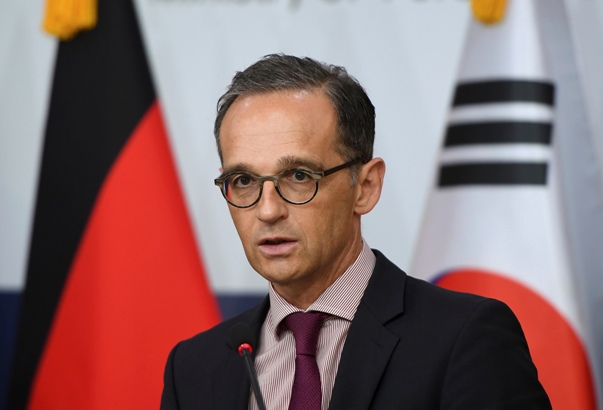Maas envisions Europe taking a “balanced share of responsibility” and being “a counterbalance when the US crosses red lines.”
By: AP
Germany’s foreign minister is calling for Europe to create a payments system independent of the United States, a move that could help keep alive the nuclear deal with Iran following the withdrawal of the US.
Minister Heiko Maas’ suggestion was part of a wider-ranging piece for Wednesday’s edition of the daily Handelsblatt on Germany’s future strategy toward the US. He said he envisions Europe taking a “balanced share of responsibility” and being “a counterbalance when the US crosses red lines.”
Chancellor Angela Merkel responded cautiously, noting that cooperation with Washington is important in combating terror financing.
Though Maas conceded that the US and Europe have been drifting apart since well before Donald Trump’s presidency, he criticized recent decisions such as Trump’s withdrawal from the Iran nuclear deal.
Germany, France and Britain, the European signatories to the 2015 agreement, have vowed to keep it alive in the face of new US sanctions against Tehran.
“In this situation, it is of strategic significance that we say clearly to Washington: we want to work together, but we will not allow you to act over our heads to our detriment,” Maas wrote.
“That is why it was right to legally protect European companies from sanctions,” he added.
“That is why it is indispensable to strengthen European autonomy by setting up payment channels that are independent of the US, creating a European monetary fund and setting up an independent SWIFT system.”
He didn’t elaborate. SWIFT is the system overseeing international bank transfers.
Separately, there has been talk for some time of upgrading a bailout fund cobbled together during Europe’s debt crisis into a full-fledged European monetary fund to assist troubled countries.
He also said that Europe must “expose fake news as such,” renewing Germany’s argument that, if trade isn’t reduced to goods, Europe rather than the US has a deficit.
Merkel said Maas’ article was an “important contribution,” reflecting her own previous statements that trans-Atlantic relations are changing and that Europe “must to some extent take its fate in its own hands.”
However, she said Maas’ article wasn’t coordinated with her, and sounded skeptical about the idea of independent payment systems. Maas is a member of the center-left Social Democrats, the junior partner in the conservative Merkel’s coalition government.
“We do face some problems in dealing with Iran, for example, no question about that,” she told reporters in Berlin.
“But on the other hand, we also know that on questions of terror financing, for example … we need a close partnership with the United States,” she added.


